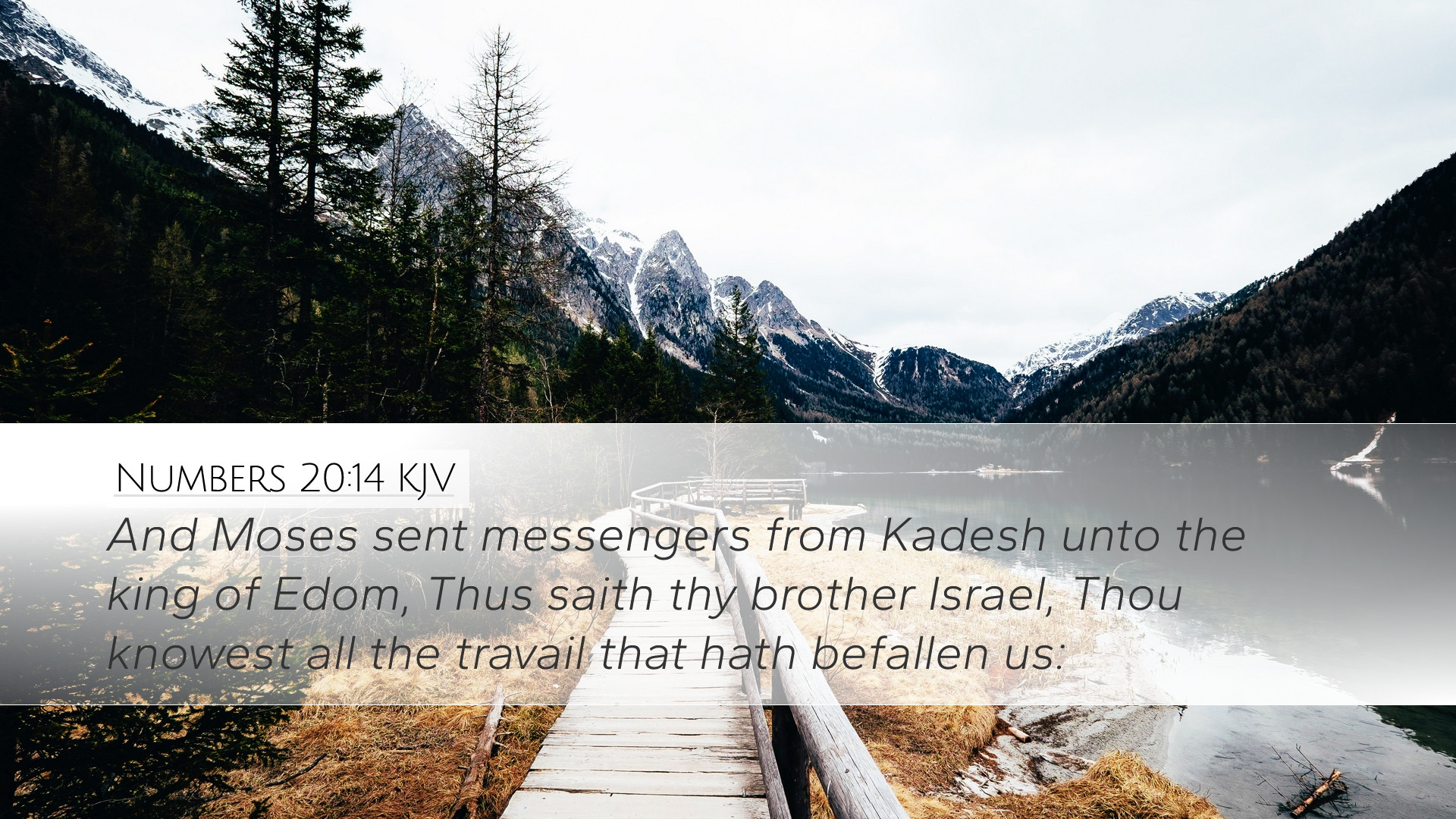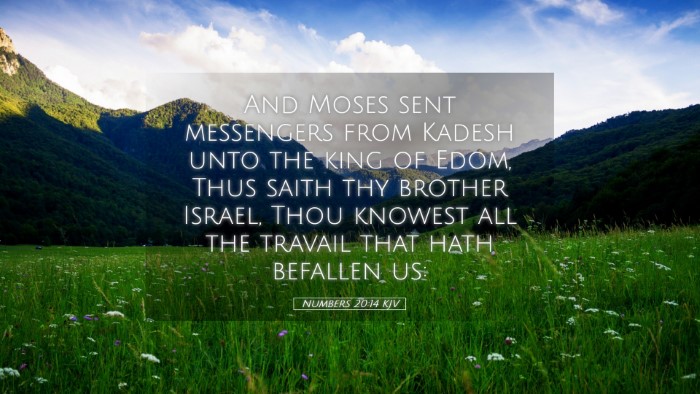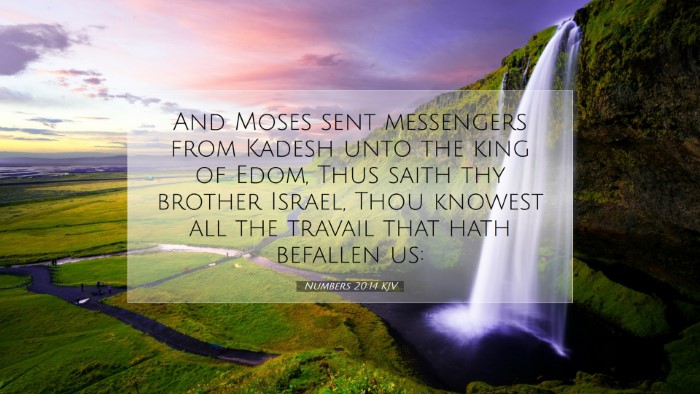Commentary on Numbers 20:14
Bible Verse: "And Moses sent messengers from Kadesh unto the king of Edom, Thus saith thy brother Israel, Thou knowest all the travail that hath befallen us."
Introduction
The verse encapsulates a critical moment in the wilderness journey of the Israelites. Moses, the leader, seeks permission from the king of Edom, a relative of Israel, to pass through Edomite territory. This request highlights underlying themes of kinship, struggle, and divine providence.
Historical Context
Matthew Henry notes that Edom is descended from Esau, making them kin to Israel, who descend from Jacob. This familial relationship sets a foundation for Moses’ approach, as he appeals to shared heritage to gain favor.
Albert Barnes adds that Edom represents both a physical and spiritual barrier for Israel. The refusal to allow passage illustrates how deep-rooted animosities can sometimes arise even among brothers.
Moses’ Approach
According to Adam Clarke, Moses employs a diplomatic tone in his message, emphasizing the shared history and struggles of the Israelites. This approach reflects an understanding of the importance of respectful communication, especially in challenging circumstances.
- Key Insight: Moses' respectful request serves as an exemplar for leaders. It teaches the principle of humility and recognition of one’s heritage when seeking favor.
The Travail of Israel
In mentioning the “travail,” Moses acknowledges the sufferings endured by the Israelites. Henry elaborates that this reference to suffering is significant, as it communicates the collective experience of hardship and perseverance. It serves as a reminder that God’s people often face trials on their journeys.
Barnes emphasizes the importance of shared history, noting that Moses' appeal invokes empathy, potentially eliciting a sympathetic response from the Edomites.
Theological Insights
This request to pass through Edom reveals profound theological themes. Clarke posits that the interplay between divine directive and human relationships is evident. Although God has promised land to Israel, they must still navigate human relationships that may resist their journey.
- Key Insight: Even when divinely appointed, believers must still rely on the cooperation and goodwill of others.
The Nature of Relationships
The dynamics between Israel and Edom serve as an essential study in relational theology. Henry notes that kinship does not always equate to friendship, and human relationships can be fraught with misunderstanding and tension. This illustrates the broader human experience where familial ties can be tested through external pressures.
- Key Insight: Relationships may require grace and understanding, especially when they are under strain.
Leadership Lessons
Moses’ leadership is characterized by patience and respect. Barnes notes that wise leaders take the time to communicate and negotiate rather than relying solely on assertion of authority. This is crucial for pastors and leaders in any community or church setting.
- Key Insight: Effective leadership includes listening, negotiating, and understanding the context in which one operates.
Application for Modern Believers
This passage prompts reflection on how modern believers navigate their relationships and responsibilities. Clarke suggests that the church today can draw lessons on showing compassion and understanding for others, recognizing shared struggles even among those who may not share the same beliefs.
- Key Insight: Engaging with others requires an acknowledgment of common struggles as a pathway to deeper relationships.
Conclusion
Numbers 20:14 encompasses not just a historical moment, but also timeless truths regarding kinship, the nature of leadership, and the importance of relationship-building. Through the diplomatic request of Moses, we glean insights applicable to contemporary issues of interpersonal dynamics and leadership within communities of faith.


